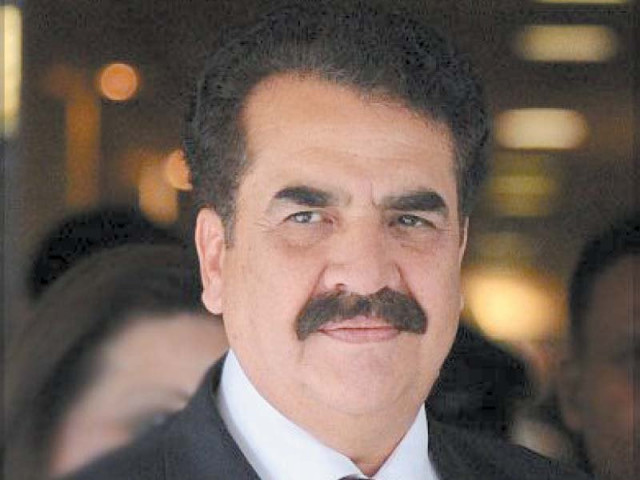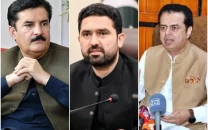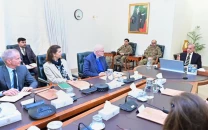Gen Raheel to head Saudi-led anti-terror force: Khawaja Asif
Defence minister says appointment was made some days ago

Gen (retd) Raheel Sharif. PHOTO: FILE
The defence minister told a private news channel that Gen Raheel’s appointment was made a few days back and that the government was taken into confidence about the former army chief’s new role. He, however, would not provide further details.
Gen Raheel Sharif: A life in pictures
Well before Gen Raheel’s retirement, there were rumours that he might be made the head of coalition of likeminded Muslim countries Saudi Arabia had cobbled together last year in the wake of the conflict in Yemen and other Middle Eastern countries.
Speculations about Gen Raheel's appointment were rife after he was recently spotted in Saudi Arabia. A video showing Gen Raheel escorted by security officials while performing Umrah went viral on social media in the last few days.
However, there was no official confirmation about his visit to Saudi Arabia.
The Inter-Services Public Relations (ISPR), the military’s media wing, would not offer any comment when approached about his appointment, saying that the military’s media wing was not authorised to say anything on his activities since he is retired.
Since the defence minister has confirmed Gen Raheel’s appointment, the move is seen as significant given the fact that Pakistan was initially reluctant to join the Saudi-led initiative. In fact, Pakistan’s relations with Saudi Arabia saw an unusual strain after Islamabad refused to send troops to Yemen to fight Houthi rebels last year. Saudi Arabia was so upset with the parliament’s resolution urging the government to stay away from the conflict in Yemen that a senior Saudi envoy at the time said the Kingdom felt betrayed.
Raheel Sharif named chief of Islamic military coalition, says Khawaja Asif
In order to pacify Saudi Arabia, Gen Raheel travelled to the Kingdom a few times and eventually Pakistan agreed to join the Saudi-led military coalition. The government, however, clarified that the Saudi coalition was not meant to interfere in Syria or Yemen. It also insisted that Pakistan would not send ground troops to any other country.
Officials here said the primary objective of the Saudi coalition was to coordinate efforts to fight groups such as Da’ish in the most effective manner.
Pakistan has maintained a somewhat neutral policy on some of the hotspots in Middle East particularly in Syria and Yemen. The policy was aimed at ensuring a delicate balance with both Saudi Arabia and Iran, which are at odds with each other on the Middle Eastern politics. Gen Raheel even attempted to mediate between Saudi Arabia and Iran but could not achieve much success.
Published in The Express Tribune, January 7th, 2017.



















COMMENTS
Comments are moderated and generally will be posted if they are on-topic and not abusive.
For more information, please see our Comments FAQ